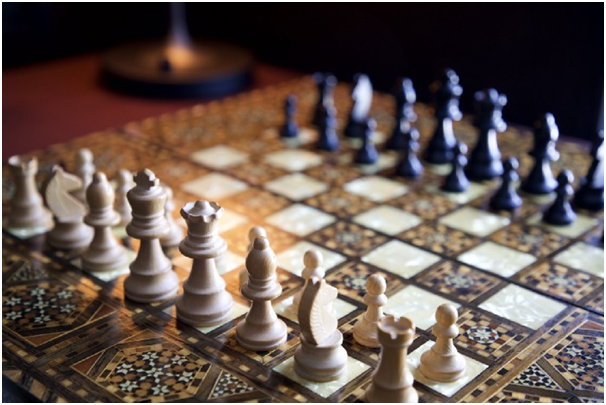[vc_row][vc_column][vc_column_text]
Chess and real life
We have heard the saying which emphasizes how we should carefully take our initial steps for the commencement of a deal, project, career, or new phase of life wisely. They say-“Well begun is half done”. I would rather say – “To be or not to be is the question” or “Will it be worth it?
Yes, I always try and see the way through the end before beginning or taking on a project to check and avoid wasting my valuable time in things which may look promising and worthy in the beginning, but will yield no output at the end.
The Soviets too did indeed teach the game of chess from the end to the beginning meaning the endgame combinations were taught first and then the middle game and finally the openings. It is similar to planning backward from a preferred position and then figure out how to arrive at the same in the fastest and easiest way from the starting point.
If you can see your endgame, your youth won’t be wasted on you

In chess problems, retrograde analysis is a technique employed to determine which moves were played leading up to a given position. This helps the GMs to not only solve that problem easily but also allows them to reach that position in any games they play in the future. It is that effective.
The best non-chess example would be when you try to solve this riddle – “Bacteria that double every 24 hours fill a lake it has infested after precisely 30 days. On what day was the lake half-full?”. For the ones who have already started complex calculations or the ones who are too lazy to do it, I would suggest you think backward once to solve it.
Do it with me, on day 30 the lake was full, on day 29? Exactly! On day 29th, the lake was half full. This technique is briefly explained by GM Maurice Ashley in a 6 minute TED talk “Working backward to solve the problem”. I strongly suggest you’ll to watch it.
Don’t want to waste your youth on the young? Then study your endgames first!
Thus, it always pays off to do what I have been doing for a long time. Further, I would like to share how exactly I use the endgame strategies of chess in real life.
• Activating the King
Almost all the 48 laws stated in the book “48 Laws of Power” by Robert Greene emphasizes how important it is to step out at the right time to practice dominance and win.
This not only portrays that you are fearless and ready to tackle anything at this stage but also gives ourselves a sense of satisfaction that we have made it so far and the confidence surges in making us bold and more productive.
In life, we may work at the backend most of the time, but when it’s time to show your worth, stepping out will always payout. It also makes you famous giving you a higher scope of exposure and growth.
The two most powerful weapons are patience and the right timing.

• Pushing the passed Pawn with a Rook
Here, rook portrays the skills that we have already mastered and the passed pawn portrays the hobby skills that we always wanted the world to know. A presentation that consists of all the digital artwork that you have created is the best example.
The audience were expecting a resourceful presentation. You no doubt delivered what they were expecting, but you also used the set stage to exhibit your other talent. Isn’t it cool?
And there is always scope that your hobby talent(Pawn) will be developed into something more prominent and resourceful(Queen) to the people around you.
Big businesses start small.
• Dominating the Rook file and rank
The positioning of the Rooks is very important to unleash their complete potential in the endgame.
If you are good at something, try to be better. Hold your grounds and never allow anyone to enter into the competition. The rook on the 7th rank is the strongest. You too are the strongest when you are alone. Use your strength to hold the door shut for a new competition. Because, in a competition, the possibilities of winning are 50%, but with no one to compete, you win always.
Be sure you put your feet at the right place, then stand firm.

• Practicing aggression
Now the stage is set to roar. In the endgame you cannot be in defensive or in survival mode, the opponent will eat you raw. In chess, if you only try to be defensive in the endgame, the opponent will play a combination of forcing moves and win the game. Same in real life, in the end, if you have a competitor alive, grab your deadliest weapon and attack. Roar aloud. You did not come this far to just come this far.
Sometimes it’s not about who has more talent, it’s about who’s hungrier.
And last but not the least, I present to you a game-changing strategy-
• Triangulation
If someone puts you in a situation where you lose if you move ahead, practice this-keep calm and plan a way to put the opponent to respond from the same position they have put you in. This is more like don’t act and don’t react. The majority of the time, we get into a situation where we are stuck and there is no way out. Here, the only possible way to win is by not reacting. Sometimes, silence works well. It puts the ball in the opponent’s court and now he is stuck.
Silence is sometimes the best answer.
Thus, these strategies have always helped me remain focused and stay ahead of the present time. I hope they will help you out too.
[/vc_column_text][/vc_column][/vc_row]
